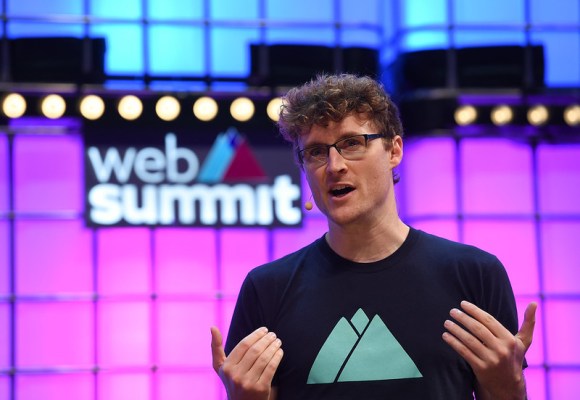Over the weekend, Paddy Cosgrave and Web Summit made the bombshell announcement that Cosgrave would step down from his post as CEO of the technology conference business — a move made to try to close the book on a sea of controversy and high-profile conference cancellations that had been pouring on him and his technology event business after Cosgrave made remarks critical of Israel in the wake of Hamas’ deadly attack on Israeli civilians and the ensuing retaliation from Israel.
Now the organization has confirmed to TechCrunch two new developments in the story.
First, Cosgrave may have stepped away from any executive role and officially from his position on the board, but he still owns 80% of the Web Summit business. That business as of right now does not have a new CEO, and it’s being run by an executive committee. (We’ve asked for a list of people on that committee and will update this post with that information when we have it.) It doesn’t appear that there is or was any obvious number-two to Cosgrave running the show in any public-facing way so if there is a plan in place to get someone into the role before the event, that might prove to be a scramble.
Right now, we understand that the group — a staff of 300 and 6,000 volunteers and contractors — is focused on delivering the next event, in Lisbon on November 13.
Second, the organization, trying to give the market a signal of moving on, confirmed that both the flagship Lisbon conference in November, plus the February 2024 event in Qatar, were still going ahead. Certain companies that had said they would pull out of participating in Lisbon were returning, the organizers said.
“Web Summit is going ahead,” a spokesperson said. “We’re going to have more than 300 partners coming. Some partners who were deliberating have come back on board and reversed their decision.” She said those that have said they would come back would be announced “in due course.”
Some of the high-profile companies that had pulled out of participating in the event included Google/Alphabet, Meta, Intel, Amazon and Stripe. Individuals who spoke out against attending Web Summit events include Keith Rabois (Founders Fund), fintech entrepreneur and investor David Marcus, Garry Tan (Y Combinator) and Adam Singolda (Taboola), among many others.
None of these have been added back to the schedule as we published this story, but we’ll update that news as we learn more.
The conference organizers said that they now expect “up to 70,000 participants” (71,000 attended last year for comparison), and that 50 speakers were added over the last week, along with 200 media in the same period. It said it expects 2,600 startups and 800 investors to attend.
Cosgrave was in Qatar working on Web Summit’s upcoming event in Doha when Hamas broke through barriers between Gaza and Israel and proceeded to kill around 1,400 civilians and take a further 200 hostage, along with injuring a number of others and destroying property. Before and as Israel retaliated with air attacks, Cosgrave posted remarks on the media platform X critical of the country and its stance. (Some initial posts now appear to have been deleted.)
His initial response shocked a number of technology executives, within and beyond Israel, and with the atmosphere already very charged, they started to call him out publicly for what they perceived as a biased response, with many announcing their intention to cancel their Web Summit participation.
Nine days after the first Hamas attacks, Cosgrave mitigated his response with remarks noting Web Summit was “devastated” by all of the killings (not just those in Palestine), and he later followed that up with a full and unreserved apology, but it appeared the damage had been done: the controversy had gone viral, leading to a number of large tech companies also pulling out, and eventually Cosgrave’s resignation.
